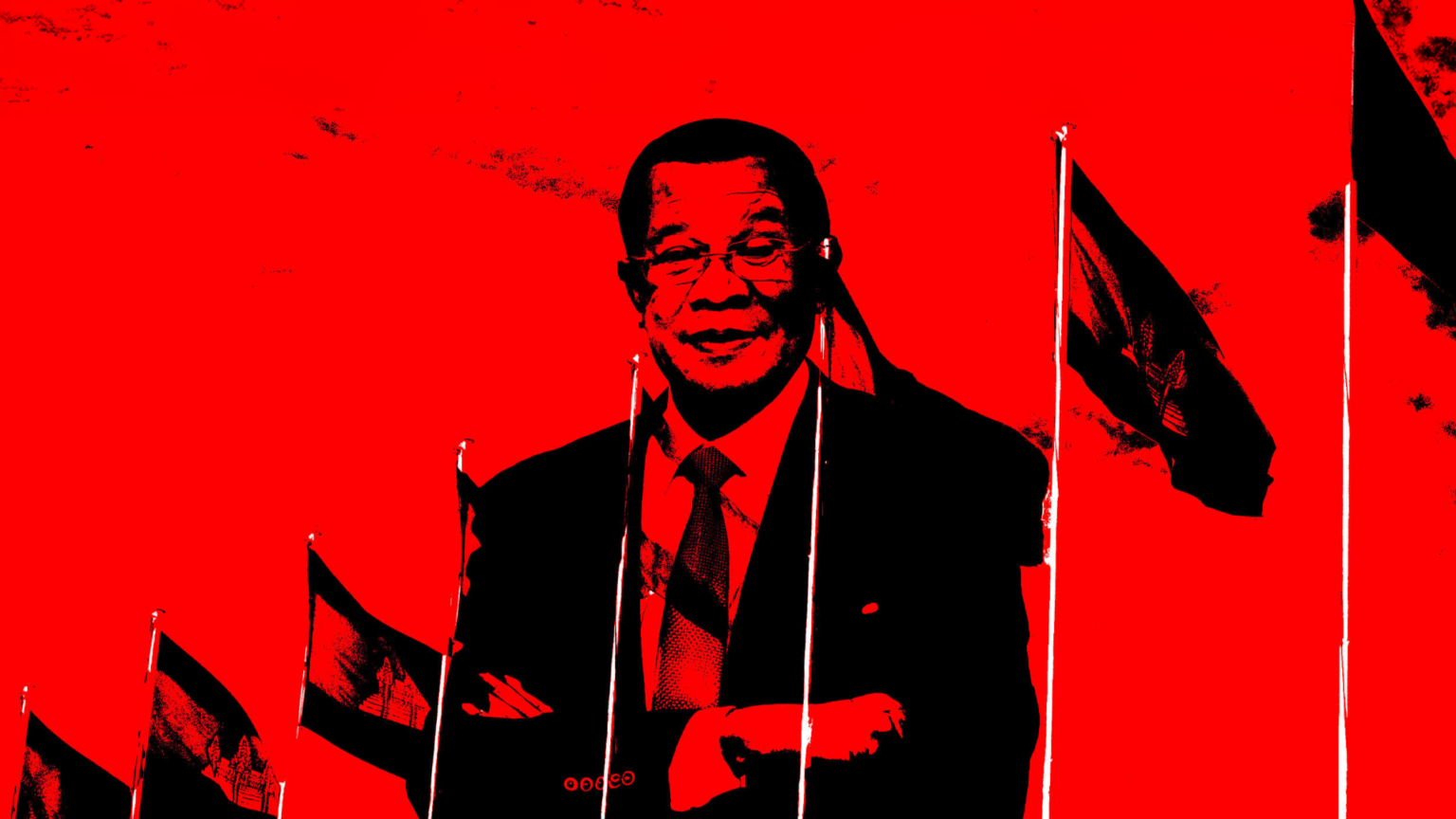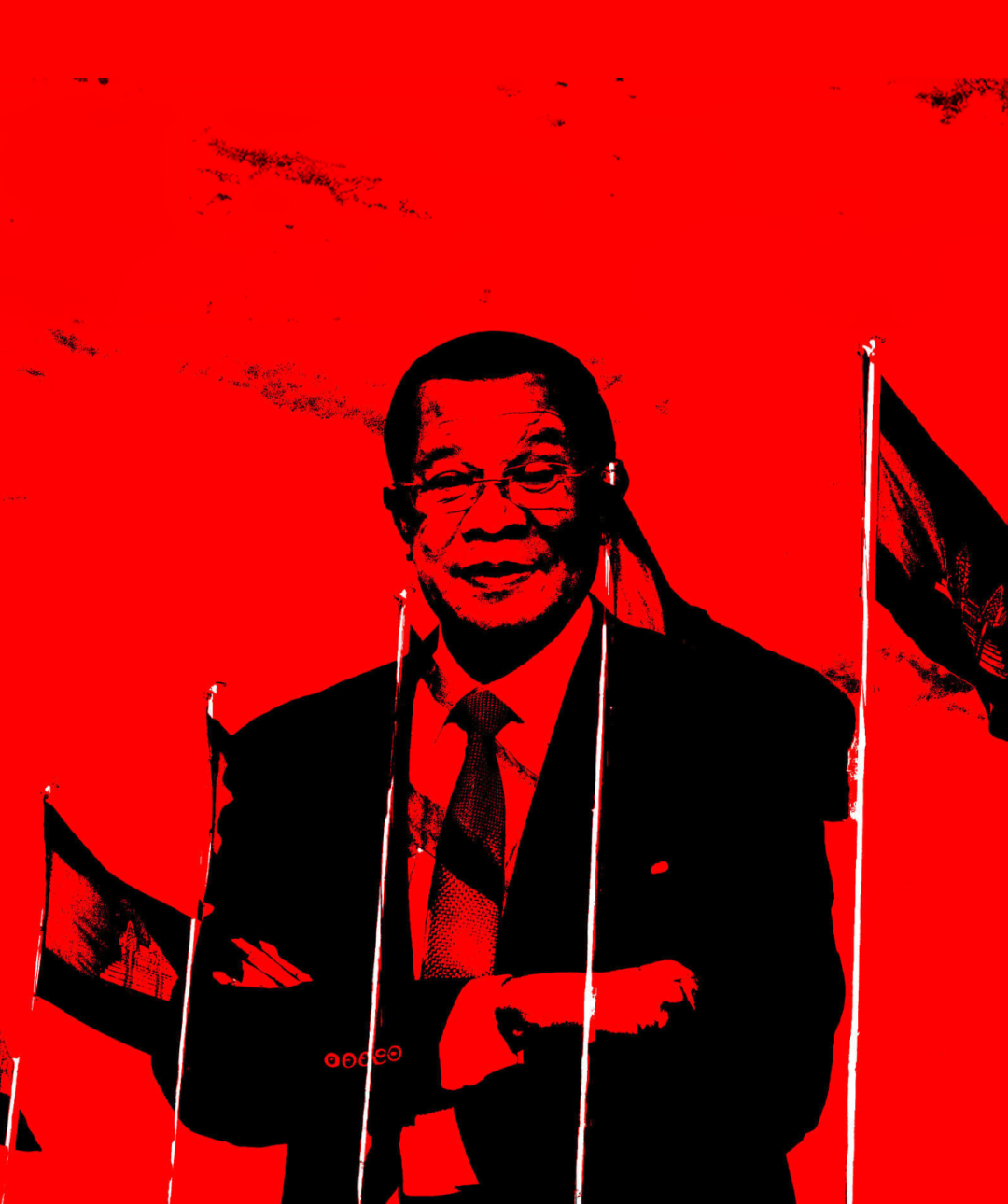

Cambodians are counting down to Sunday’s general election. Prime Minister Hun Sen, one of the world’s longest-serving dictators — 38 years and counting — is aiming to “win” yet another rigged election. Progressively over the past decades, Hun Sen has carefully engineered electoral rules to maintain control over both the judiciary and the National Election Committee. This has allowed Hun Sen and the ruling party to sweep out opposition members and silence opposing voices.
Dissolving the Opposition
As Hun Sen kicked off his most recent election campaign, the regime banned the main opposition party, the Candlelight Party, from participating in the upcoming elections. The move allows the ruling Cambodian People’s Party (CPP) to run a one-horse race; Hun Sen is reportedly preparing to pass his position to his son without any opposition or challengers.
This is not the first time the regime has used dirty tactics to disqualify opposition parties. In 2017, Cambodia’s Supreme Court dissolved the Cambodia National Rescue Party (CNRP), the main opposition party at that time and the only existing electoral threat to Hun Sen. The court ruling also ordered a five-year political ban for 118 opposition members. The same year, Sam Rainsy, a prominent opposition figure and co-founder of the CNRP, was found guilty of “defaming” Hun Sen and ordered to pay one million USD in damages.
Kem Sokha, the former leader of the now-dissolved CNRP, was sentenced to 27 years in prison for “treason” charges and banned from running for office. These convictions are part of a larger pattern of harassment, intimidation, and threats against opposition figures and dissidents.
Recently, several opposition members have been threatened, physically attacked, and arrested for politically motivated charges. In a speech given in January, Hun Sen warned his opponents they would face legal action or physical assault if they continued to criticize the ruling CPP. As he put it, “There are two choices: the first is to use legal actions, and the second is to use a stick … So, which one do you prefer?” Hun Sen is using every repressive tool at his disposal to prolong his term.
Intimidating the Public and Media
Cambodia recently amended a law prohibiting politicians from participating in elections if they fail to vote in the parliamentary election. Moreover, the National Election Committee has threatened fines of five to 20 million riels (approximately $1,200 – $4,800) and prison terms for those who call for a boycott of the upcoming election. The move appears to be an effort to boost voter turnout and bring a false sense of legitimacy to the election.
Last month, Hun Sen resorted to threatening the public to vote to create a false sense of high participation. During a speech, he warned that citizens who don’t vote could be considered “anti-election” and even “be linked to the Third-Generation Traitors.” In the same address, Hun Sen further warned he would eliminate “radicals (politicians)” who have been “trying to destroy their own nation.” This was perceived as a direct message to figures like Rainsy, who have continuously called for people to boycott every election due to its illegitimacy.
To further silence critics, the regime has renewed attacks against the media. Hun Sen and his allies control several state-owned outlets, which flood the country with state-controlled misinformation while disqualifying independent media as “propaganda.” In February, the regime shut down Voice of Democracy (VOD), one of the country’s last remaining independent media outlets. Prior to that, three media outlets — Bayong Times, Khmer Cover TV (KCTV), and Cambodia Today — all had their licenses revoked.
How the International Community Should Respond
The international community and monitoring groups should continue to raise concerns about violations and attacks against opposition figures, independent media, and activists. In addition, international and regional monitoring groups should not send electoral observers or provide election assistance, as it will only aid Hun Sen’s efforts to prolong his party’s power and appear legitimate. Rather, Cambodia’s top trade partners, such as the United States, Japan, and Germany, should denounce the CPP’s authoritarianism and avoid doing business with Hun Sen-affiliated companies.
Lastly, the Association of Southeast Asian Nations (ASEAN), one of Cambodia’s strongest allies besides China, should reduce diplomatic engagement and distance themselves from the regime.
The international community must send a clear message that Cambodia’s sham election is unacceptable and must not recognize the result.
Join us in helping save lives and stand up to tyranny.

Reach out with any questions or support needs.
Become part of our mission-driven team.
Find answers to commonly asked questions in our FAQs.
Hit enter to search or ESC to close